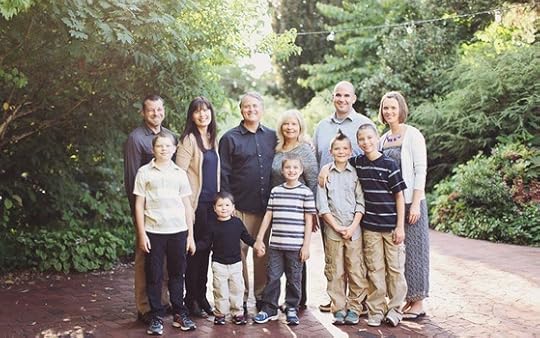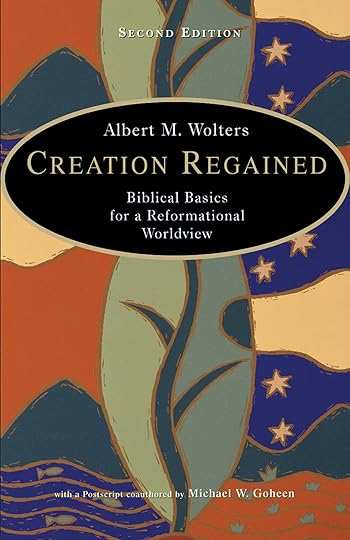Randy Alcorn's Blog, page 53
June 24, 2022
Josef Tson: What His Suffering for Christ in Communist Romania Taught Him, and Can Teach Us

Richard Wurmbrand’s Tortured for Christ influenced me profoundly as a young Christian. In Romania, guards tied prisoners to crosses and smeared them with human excrement. From our perspective, the perpetrators might have seemed beyond redemption; yet some of the guards who did these unspeakable acts saw the inexplicable love, devotion, and faith of the Christians they tortured.
Wurmbrand wrote, “I have seen Christians in Communist prisons with fifty pounds of chains on their feet, tortured with red-hot iron pokers, in whose throats spoonfuls of salt had been forced, being kept afterward from water, starving, whipped, suffering from cold—and praying with fervor for the Communists.”
Josef Tson, once the best-known pastor in Romania, was one such suffering saint. At a time when the Christian faith had become virtually illegal, he openly preached the gospel. Police threatened him repeatedly with imprisonment and arrest. In his sixties he studied at Oxford for his doctorate, writing a dissertation that became a book titled Suffering, Martyrdom, and Rewards in Heaven.
I opened the Scriptures with Josef in 1988, with a group of theologians discussing eternal rewards. Twenty years later, writing my book If God Is Good, I remembered his stories and insights and called him again, in order to share his insights with others. Josef explained to me how the belief that God doesn’t want His people to suffer once corrupted the Romanian church. In the interests of self-preservation, he said, they failed to speak out against injustice, tyranny, and the idolatry of turning men into gods. He recalls joining the crowd on the streets and crying, “Glory to Stalin.”
God convicted Josef. As a pastor he refused to glorify communist leaders and started to speak out boldly for Christ. Interrogators threatened him with death every day for six months. Finally he told them, “Your supreme weapon is killing. My supreme weapon is dying. My preaching will speak ten times louder after you kill me.”
Josef said, “During the time I was expecting to be crushed by the Romanian secret police interrogators, God became more real to me than ever before or after in my life. It is difficult to put into words the experience I had with God at that time. It was like a rapture into a sweet and total communion with the Beloved. God’s test for me then became the pathway to a special knowledge of the reality of God.”
Finally, in 1981, the Romanian government exiled him.
After facing much evil and nearly being martyred in Ceauşescu’s Romania, Josef told me, “This world, with all its evil, is God’s deliberately chosen environment for people to grow in their characters. The character and trustworthiness we form here, we take with us there, to Heaven. Romans and 1 Peter 3:19 make clear that suffering is a grace from God. It is a grace given us now to prepare us for living forever.”
He also told me he believed that 95 percent of Christians pass the test of adversity, while 95 percent fail the test of prosperity.
In the West, with our conspicuous prosperity and ease, Christianity’s popularity continues to shrink. In Africa, Asia, and South America, with much greater adversity and suffering, it continues to grow.
Josef Tson believes, “The gospel will never be spread without someone suffering.” He said our first question in suffering should not be, “Why?” but, “God, what do you want to do in the world through my suffering?”
Josef continues, “God achieves great things in the world through the one who accepts His way of suffering and self-sacrifice. In the end, however, it turns out that the greatest things are achieved in the sufferer himself. The one who sacrificially expects to be a blessing for others discovers that, in the final analysis, he is the one who has harvested the greatest blessings.”
Suffering can help us know God and prepare us to trade a shallow life not worth keeping for a deeper life we’ll never lose.
When interrogators worked Josef into exhaustion for ten hours a day, one of his persecutors made a strange statement: “Pastor Tson, when I interrogate people I am used to feeling their hatred for me. But you do not hate me. It has become a delight for me to be with you.”
Jesus saw our suffering as an opportunity to bring the gospel: “They will lay their hands on you and persecute you, delivering you up to the synagogues and prisons, and you will be brought before kings and governors for my name’s sake. This will be your opportunity to bear witness” (Luke 21:12–13, ESV).
Josef viewed his suffering as God’s means to accomplish God’s purpose. He told of guards coming to Christ while beating Christian prisoners, then confessing their faith and being imprisoned and tortured themselves. As a result, the gospel his persecutors tried to dismiss touched them instead.
Learn more about Josef, and watch this sermon clip to hear him speak about “The Holy Spirit's One Business for Believers”:
June 22, 2022
Her Children Rise Up and Call Her Blessed: Thoughts from Nanci’s Family at Her Memorial

One of the more unique things at Nanci’s service was that she had requested her family be given the opportunity to record some thoughts on video about her rather than having to stand up and speak live. She didn’t want them to be nervous or self-conscious on that weighty day.
I want to share these videos not only to celebrate and remember Nanci (many of you who follow me online didn’t know her personally) but also to learn from how she lived faithfully over her lifetime, and especially in her last four years. People talk about finishing well, but she really did finish SO WELL.
Still, it was hard for Nanci to think of being separated (though temporarily) from her beloved family. In 2019, she wrote in her journal, “My greatest ‘fear’ is not being here for my family: Randy living alone; my grandsons not having me to cheer them on. I fear that resentment toward God might grow in their hearts—or that they will question the efficacy of prayer. I don’t want people to be sad or discouraged because of my death. I really want to stay around and be here for my loved ones. Deep in my heart I really feel that it is not my time to go. I am not afraid of dying. I sometimes get excited about entering Paradise and seeing Jesus and my loved ones and meeting the saints! But of course, God has everything planned. He knows, and I trust Him. Really.”
And for the next years God gave her, she truly did model trusting Him. And then, a week before Jesus took her home, she was surrounded by the other ten of us and spoke into our lives.
I loved what her sister and each of our kids and grandkids had to share about Nanci. The video of our youngest grandson, David, might make you laugh and cry, like it did many of us. But each of them are precious in their own special ways, and you’ll see that too.
Proverbs 31:28 describes Nanci perfectly: “Her children rise up and call her blessed; her husband also praises her.”
Grandsons Matt, Jack, and David Franklin:
June 20, 2022
Diagnosing Deconstruction: Four Root Causes

Note from Randy: I love this article by Joshua Ryan Butler, lead pastor of Redemption Tempe, a thriving church near Arizona State University. What he wrote has the ring of truth—in all four causes for what is popularly called deconstruction, and which used to be called “loss of faith.”
I have seen a number of people fall into sin and then change their worldview to make the sin seem more enjoyable or tolerable. I've seen others whose first priority in life is not believing and living according to the truth, but appearing to be cool, relevant, and on the cutting edge, which inevitably includes hedging on and outright denying some of what the Bible says to be true.
Pain inflicted in church communities is so rampant that I have used it as a segue into evangelism, saying, “I’ll bet you have been really hurt by church people, haven’t you?” When they ask, “How did you know?” I say, “Because I’m a Christian, and I’ve been hurt by church people. And you know what? I’ve hurt people too.”
This article sparked a two-hour conversation with one of my family members. I hope you find it helpful and thought-provoking and useful to share with others.
Thanks, Joshua!
4 Causes of Deconstruction
By Joshua Ryan Butler
Deconstruction is a symptom, not the root cause.
A proper diagnosis is important because—to continue the medical analogy—each underlying condition has a different cure.
I’ve walked as a pastor with many wrestling with deconstruction. While not exhaustive, these are the four most common root causes I’ve seen. Let’s look at the gospel’s treatment plan for each.
1. Church Hurt
Many who deconstruct have been wounded by abusive or manipulative church leaders, or generally unhealthy church cultures. Often these relationships were intimate and formative: the pastor you grew up with, the mentor you trusted. For others, the relationships are more distant. You grew up under the influence of leaders like Ravi Zacharias, Carl Lentz, or Mark Driscoll—whose teaching and charisma powerfully inspired you and formatively shaped you—but then the curtain got pulled back. The betrayal can make the whole thing look like a sham. The pain can be excruciating and disorienting.
It’s easier to throw the baby out with the bathwater when you feel like you’ve been drowning.
Church hurt is real. But deconstruction is a false cure.
The gospel’s remedy is lament. The psalms often protest mistreatment at the hands of God’s people and petition for his justice. David—who wrote a majority of the psalms—experienced abusive leadership firsthand from King Saul. Yet he sought the Righteous Judge with lament, groans, and tears.
You don’t need to ignore the church’s problems to protect its reputation. Instead, bring the problems boldly to God—like David did—and encounter a deeper intimacy with him as you’re honest about your wounds. Deconstruction bypasses this deeper healing. It’s a shortcut that internalizes grief rather than bringing it before God.
We’re not good at grief today. Much of deconstruction exists because it’s easier to move on than to be sad. But the only true and eternal cure for these deeper wounds is Christ.
The solution to bad community isn’t abandoning community; it’s good community. A healthy treatment plan will eventually involve rebuilding a good church community with good boundaries and good leaders. No community’s perfect, but trust can be rebuilt on the other side of lament, in healthy relationships centered on Jesus and life together as his people.
Diagnosis: church hurt
Cure: grief and lament
2. Poor Teaching
Some Christians have been led to believe they must choose between faith and science, because of poor teaching on Genesis 1. Others have been led to believe God is a vindictive sadist, from a popular caricature of hell. Best abandon Christian faith entirely on account of some dubious or sloppy teaching, right?
But if the problem is bad teaching, the solution is good teaching. There are great resources out there (such as TGC’s recent book, Before You Lose Your Faith, and video series “Gen Z’s Questions About Christianity”) and many wise pastors are walking patiently with those who wrestle with hard questions. Good teaching and good teachers exist.
Jesus is the best model of replacing bad teaching with good teaching. I love his refrain in the Sermon on the Mount: “You have heard it said . . . but I say” (Matt. 5–7). Jesus deconstructs bad teaching in order to reconstruct good teaching. Not all deconstruction is bad.
The bad form of deconstruction, as my friend Seth Troutt pointed out, is epitomized by the serpent’s question in the Garden: Did God really say? (Gen. 3). The enemy wants us to break trust with God and distance ourselves from him and his people. This is the way of most deconstruction today.
Jesus shows us a better way. In contrast to the serpent’s question, Jesus proclaims: You have heard it said . . . but I say. The serpent’s goal is to break trust; Jesus’s goal is to build trust. The serpent’s goal is to distance us from God; Jesus’s goal is to draw us closer to God.
Some mistakenly think Jesus is critiquing the Old Testament when he says “You have heard it said.” But Jesus loves his Hebrew Bible. He’s constantly saying things like, “It is written,” “Have you not read?” and “I have come not to abolish the Scriptures but to fulfill them.” Jesus has a higher view of the Old Testament than most of us do.
Jesus is critiquing not the Scriptures, but faulty traditions and insufficient interpretations. Not much has changed. Inaccurate caricatures and misreadings of Scripture are everywhere today, even promoted within some churches.
We need to take good teaching seriously. Our refrain should be, You have heard it said, but Jesus says. . . . I’ve written books on hell, judgment, holy war, sacrifice, wrath, and atonement, and I’m writing one on sex and gender. I’m often trying to confront popular caricatures of the Christian faith and replace them with a healthy, biblical, historic understanding. That’s one of TGC’s goals, too.
Today’s deconstruction allows bad teaching to have the last word. It rejects a distorted vision and misses an encounter with the real thing: the living God. Such a “remedy” kills the very patients it seeks to cure, distancing them from the pure medicine (in Christ) that alone can truly heal. The gospel’s treatment plan, meanwhile, does not simply ditch bad teaching, but replaces it with good teaching.
Diagnosis: bad teaching
Cure: good teaching
3. Desire to Sin
Some deconstruct out of a desire to justify their sin. Many friends in ministry have suddenly had “big questions about God”—then proceeded to quickly deconstruct their faith. So many times, it later comes out they’d been having an affair that started well before their deconstruction began.
I minister in a college town (go ASU Sun Devils) where students regularly deconstruct when they’ve started sleeping with their girlfriend or boyfriend. Convenient timing. Others deconstruct while harboring an addiction (drugs, alcohol, porn), to release their guilt.
Deconstruction here is usually presented as an anguishing process of honest wrestling (“I just don’t understand why God won’t show up and answer me”). It casts the questioner as the hero grappling authentically with a God too distant to trust or too difficult to believe.
This masks what’s really going on. “What the heart wants, the mind justifies,” the old quip wisely observes. God allows us to think we are “judging” him, when really it’s a form of God’s judgment on us. It exposes how far we’re willing to go to justify our sin. God hands us over to the depravity of our mind, that we might attain the corrupted desires of our heart.
If the problem is a desire to sin, the solution is confession and repentance. Jesus invites all to “open their eyes, so that they may turn from darkness to light and from the power of Satan to God, that they may receive forgiveness of sins and a place among those who are sanctified by faith in me” (Acts 26:18).
Deconstruction is poison, not medicine. It supplements the sin that’s killing you, rather than healing it. It allows you to save face, to look virtuous in your departure from God (“He’s the problem, not me”), while distracting you from squarely facing your true motivations.
Deconstruction is playing with fire; grace is real and can heal. James offers wise advice: “Cleanse your hands, you sinners, and purify your hearts, you double minded.” Yet he also gives a hope-filled promise for those who would deconstruct: “Submit yourselves therefore to God. Resist the devil, and he will flee from you. Draw near to God, and he will draw near to you” (James 4:7–8).
Diagnosis: desire to sin
Cure: confession and repentance
4. Street Cred
Doubt is hip. The desire to fit in with the cultural ethos of our moment is strong. That’s why so many deconversion stories sound like everyone’s reading off the same script—its well-worn clichés signaling conformity to accepted norms.
Celebrities are leading the charge. There’s influence to be had, platforms to be built, and money to be made. It gets Rob Bell on Oprah, bolsters Glennon Doyle’s book sales, and lets Rhett & Link host Nacho Libre and Harry Potter on their popular YouTube channel.
A wave of #exvangelical podcasters and TikTok stars are following in the wake, with a whole cottage industry to welcome and cheer them on. There’s clout in distancing oneself from “outdated” views of sex and gender, an “obscure” Bible with talking snakes and forbidden shellfish, and “offensive” doctrines like wrath and hell.
I’m not claiming to know the heart of such influencers. Motivations other than street cred can be powerfully at play. I’m simply observing that social pressure is a powerful carrot on the stick—and not just for celebrities.
The cultural hostility is real. Whether in progressive urban centers (like my hometown of Portland), or university environments (like where I currently live), Christians are decidedly not the cool kids. It’s hard to be the awkward one sitting alone at lunch. Many of us feel the social pressure—and the release valve is a simple Instagram post away.
The “cure” here is the crucifixion of your image. The gospel calls you to mortify your love of influence and prestige—put it to death. Jesus warns of those who love “the glory that comes from man” more than “the glory that comes from God” (John 12:43). It’s not wrong to want love and affirmation; it’s just wrong to want it more from your fickle friends than your faithful God.
John warns, “Do not love the world or anything in the world. If anyone loves the world, love for the Father is not in him” (1 John 2:15). The world here refers not to God’s good creation, but sinful patterns that have been normalized in society through our rebellion against God. At the heart of these patterns is our desire for autonomy from God—the very desire championed by deconstruction today.
Deconstruction can fuel vanity. It can feed on your insecurity, your desire for acceptance, by puffing you up with the hot air of the world. The gospel, in contrast, calls you to “Humble yourselves, therefore, under the mighty hand of God so that at the proper time he may exalt you” (1 Pet. 5:6). God humbles you in the eyes of the world, in order to ultimately lift you up with him.
Mortify your desire for street cred in order to experience union with God.
Diagnosis: street cred
Cure: crucifixion of image
Diagnosis and Cure
As a pastor, I’ve found understanding these root causes helpful when walking with people through deconstruction. A proper diagnosis helps administer the right cure.
It’s a bummer if someone’s dealing with church hurt and you hand him a stack of apologetics books to read. Those same books will be useless if, beneath the surface, he really just wants to justify his sin.
It’s also worth recognizing: people’s real motives will often be different from their stated motives. I’ve had people come to me “with big questions about God,” only to later discover they were feeling social pressure at school or having an affair at the office.
Also, people can have multiple motives. Some lingering theology questions, a bad church experience, and a desire for street cred can all stew together in the heart’s cauldron. Being a good pastor, mentor, or friend will require attention to the uniqueness of each situation.
This all implies a challenge: it takes time. Ministering in the age of deconstruction will likely involve attentiveness in conversation, sensitivity to the Spirit, and the risk of investment—knowing the person might end up bailing anyway. Good doctors take time with their patients, and as ministers of the gospel we must too. Yet while wisdom may prescribe distinct treatment plans, there’s ultimately one source of healing we’re seeking to administer: the remedy found in Jesus Christ.
This article originally appeared on The Gospel Coalition, and is used with permission of the author.
Photo by Josue Michel on Unsplash
June 17, 2022
Care for the Lambs: Reaching Children with the Love of Jesus

Jesus said in Matthew 19:14, “Let the little children come to me and do not hinder them, for to such belongs the kingdom of heaven.” The disciples might have been telling people, “Keep the children to the side. They’re just distracting. The Lord is here to teach the multitudes, but children get in the way.” But Jesus said, “No. Let them come to me.” He held them in His arms and elevated their status when He said, “The Kingdom of Heaven belongs to such as these.” God puts great value in the loving, trusting heart of a child.
There’s another intriguing (and often overlooked) verse related to God’s special love for children. In Matthew 18:10 Jesus says, “See that you do not despise one of these little ones. For I tell you that in heaven their angels always see the face of my Father who is in heaven.” At first glance, we might think Jesus is saying that children have guardian angels. That may very well be true, but guardian angels would be here on earth around us, engaged in spiritual battle. There are some passages that imply their presence in our lives, but these particular angels Jesus refers to in Matthew 18:10 are not engaged in spiritual warfare on Earth. Instead, they are in Heaven, continuously beholding the face of the Father.
What does that mean? I think it means God has appointed angels in Heaven who bring the cause of the children constantly before Him. It’s not like God doesn’t know or care what’s happening in their lives, but He often chooses to use secondary agents (like His followers) to do His work. He’s sovereign and all-knowing and doesn’t need angels to do that, any more than He needs us. But He chooses to have angels representing the cause of children and being a voice for them before Him. That’s a staggering thought. God also has special rewards for those who help children (and conversely, special judgment for those who harm them).
Several months ago, Nanci read this to me from her Charles Spurgeon devotional. I found it very touching, and applicable to the subject of children and teaching them to follow Christ:
You Christians, don’t despise anybody, but specially do not despise any in whom you see even a little love to Christ. But do more—look after them, look after the little ones. I think I have heard of a shepherd who had a remarkably fine flock of sheep, and he had a secret about them. He was often asked how it was that his flocks seemed so much to excel all others. At last he told the secret—“I give my principal attention to the lambs.” Now you elders of the church, and you my matronly sisters, you that know the Lord, and have known him for years, look up the lambs, search them out, and take a special care of them; and if they are well nurtured in their early days they will get a strength of spiritual constitution that will make them the joy of the Good Shepherd during the rest of their days.
Photo by Tonia Kraakman on Unsplash
June 15, 2022
Ordinary Faithfulness Has Great Eternal Impact: My Message at Nanci’s Memorial Service

I had the honor of speaking at Nanci’s memorial service last month and sharing my heart and perspectives. During my message I read several of her journal entries. The service was long (2 hours, 40 minutes) but many have said it held their interest. However, I want to give people the opportunity to see it in smaller chunks if they want to. In this blog we are posting just my message. In other blogs we’ll hear from our family, Nanci’s friends, and our pastors and their wives.
One of the things I’ve been contemplating is that Nanci was in so many ways not like Amy Carmichael, Elisabeth Elliot, or Nancy DeMoss Wolgemuth, who had or have very public ministries and are widely known. Yet she lived a faithful life by being more normal and accessible in ordinary ways. She was “down to earth” while furthering the agenda of Heaven. One example is the couple she brought to Christ and our church by talking with them when she was out walking our dogs.
I’ve told people not to view Nanci or me as extraordinary or heroic. We are ordinary people of faith, and your lives life matters every bit much as ours. Some of us have a larger platform, and it may give the illusion that we are better and that we have access to divine blessings others don’t. But that’s a lie. We each have our own unique sphere of influence that God calls us to be faithful in. Nanci and I are normal people with sin and struggles. The point is not to put Nanci on a pedestal, but through her, to see Jesus on the throne of the universe.
The single greatest thing about Nanci Noren Alcorn is that she had an incredibly big view of her Lord and Savior, and sought to serve and know and love Him every day. And that big view of God is also yours for the taking. So reach out and take it. Hope this 41-minute message encourages you to do so:
June 13, 2022
Our Mission: Make More Disciples and Fewer Performers

The one indispensable requirement for producing godly, mature Christians is godly, mature Christians.” —Kevin DeYoung
“All the believers devoted themselves to the apostles’ teaching, and to fellowship, and to sharing in meals (including the Lord’s Supper), and to prayer” (Acts 2:42, NLT).
A 1977 movie, Capricorn One, depicted NASA’s long process of targeting a mission to Mars. Because the program had become increasingly unpopular due to several failures, this mission would make or break the U.S. space program.
Everything was in place. The astronauts were ready. Then suddenly, just before takeoff, they were secreted away to an undisclosed location. Meanwhile the capsule was launched into outer space. From the point of view of those on Earth, it appeared to be a complete success.
But why was the launch made without astronauts? Because the scientists discovered a flaw in the capsule’s life support system. The oxygen wouldn’t last. The astronauts would die.
Then why not reschedule the departure? Because it would be an admission of failure on the part of the space program, and they could not stand one more failure. People would no longer believe in NASA or support spending millions of tax dollars to explore outer space.
So to further public confidence in the space program, the astronauts were told they now must become actors. An isolated site was set up as a shooting location, made to look like the surface of Mars. They were told to drive around in their little Mars rover, send their reports, and greet their families, while those on Earth would be none the wiser.
How the movie ends actually doesn’t matter, but I see the plot as analogous to what happens in some churches. According to current thinking, churches must chase success. And success is defined by numbers: how many worshippers and how much wealth. The number of Facebook followers becomes more important than the number of Jesus-followers.
Many churches exist solely to seek God and share Him with their communities. They may use technology and programs as tools to reach as many people for Christ as they can. Good for them!
My concern is with churches that use God as a tool to launch programs and meet benchmarks of success. Instead of sharing the true gospel, which is what people really need, they compromise on the nature of the gospel and adopt the world’s message and methodology. What these churches produce ends up essentially mirroring what NASA did in Capricorn One. They focus on performance over process. On stagecraft over sanctification. Pastors-turned-performers act as if the Spirit of God were doing great and wonderful things, when in fact nothing supernatural has happened.
This breeds attendees who become like the astronauts-turned-actors. They are exposed to the world throughout the week and come to church for entertainment packaged as a religious and transcendent experience. They want the best of this world and the next without the sacrifice—and they want it now.
Our tendency is to believe that those who act like us, since we are converts, are true converts. But the point of conversion is a transformed life, the kind of life that re-centers itself around Christ. If you and your fellow church goers exhibit the characteristic fruit of the Spirit, “love, joy, peace, patience, kindness, goodness, faithfulness, gentleness, self-control; against such things there is no law” (Galatians 5:23, ESV), then you are on the right track. When Jesus is the center of gravity—not pleasure, success, wealth, and health—the church body becomes truly healthy and wealthy in all the right ways.
When the world offers those things, it does so as substitutes for Christ. This means the lives of actor-converts are not Christ-centered, no matter how Christian their vocabulary may sound. Jesus Himself expected radical obedience from His followers: “Why do you call me ‘Lord, Lord,’ and not do what I tell you?” (Luke 6:46).
Pretend actors-for-Jesus can quote Scripture, but their desires haven’t changed. They merely feel good that they now have religion, too. Their faith is not a central transforming reality; it’s an add-on to enhance their lives. They believe in a god made in their own image, not the true God of the Bible. They worship a cosmic genie who meets their needs and gives them what they want. They may call themselves servants of Christ. But in fact, they are masters, calling the shots, claiming what they want to claim and believing what they want to believe and expecting God to come through for them. And when He doesn’t, they either blame Him for not being good or blame themselves and others for not having enough faith to get their way.
How different from the biblical description of us as slaves of Jesus Christ! Yes, the original word is best translated slaves, not servants, and describes those who are sold out to His ownership and committed to do whatever He calls them to do, including dying on His behalf should He so desire. “Live as free people, but do not use your freedom as a cover-up for evil; live as God’s slaves” (1 Peter 2:16, NIV).
We are also called children of the King, and there is a time when we will enjoy all the privileges of royalty. But now is not that time! Presently we experience some royal kingdom privileges, including constant and unhindered access to the One who sits on the throne. We can “come boldly before the throne of grace,” as Hebrews says. God’s Holy Spirit dwells within us. He has promised to provide what we need to serve Him (Matthew 6:25-32). But when it comes to enjoying all the material provisions living in the King’s mansion provides, we are not yet there.
We are still on foreign soil—hostile soil—where people are fighting against God’s kingdom. We are not just tourists or palace-dwellers; we are “strangers and exiles on the earth,” who are “seeking a homeland” (Hebrews 11:13-14), and longing for “a better country, that is, a heavenly one” (Hebrews 11:16).
What we need in our churches today are fewer actors and more sold-out followers of Jesus—converted people living lives centered on Jesus, the King of kings.
And the good news is, there truly are many such people in our churches. Our goal should be to cultivate more and more of them. “Therefore go and make disciples of all nations, baptizing them in the name of the Father and of the Son and of the Holy Spirit, and teaching them to obey everything I have commanded you. And surely I am with you always, to the very end of the age” (Matthew 28:19-20, NIV).
We don’t need makeovers and airbrushing; we need transformation. We need a miracle that God alone can perform in our hearts. And we need to stand together, arm in arm, loving one another and showing the world the marvelous truth about Jesus. Some will misunderstand and even hate that. But others will be drawn to Jesus and His good news, and forever changed.
If we’re going to act, let’s act like Jesus, and watch what happens.
“The Kingdom of God is not going to be advanced by our churches becoming filled with men, but by men in our churches becoming filled with God.” —Duncan Campbell
Photo by Jean-Philippe Delberghe on Unsplash
June 10, 2022
Albert Wolters’s Creation Regained, and the Vast Redemptive Scope of the Gospel

While researching online about the New Earth for my book Heaven, I stumbled upon Creation Regained. I ordered it based on its title alone (which often proves to be a big mistake). From its opening chapter on worldview, I knew I had discovered a treasure. As I read what Albert Wolters had to say about creation, the fall, and redemption, I found myself repeatedly exclaiming “Yes!”
Until then, I had read only a few other books that resonated with the vast redemptive scope of Matthew 19:28, Acts 3:21, Romans 8:18-23, and other Scriptures. Regrettably, I have seen few since. For too long we have reduced and distorted the gospel to the snatching of souls from Earth to a distant and intangible realm suitable for angels, not people. Yet the Bible shows that in His unfolding drama of redemption, God is at work to reclaim not just our souls, but also our bodies, and not just our bodies, but also the earth from which that first human body was made, and over which God purposed us to reign.
 Al Wolters concisely and persuasively demonstrates that God’s plan for righteous humanity to live on and reign over an uncursed earth was not thwarted by Satan or by man’s sin. (How small He would be if that were the case.) God never revoked or abandoned His original great commission for us to rule a good earth to His glory. The last chapters of the Bible promise that His original design—as revealed in the first chapters and greatly enhanced and magnified through Christ’s work—will indeed be fulfilled on the New Earth. Having fallen on mankind’s coat-tails, Earth will rise on our coat-tails—resurrected humanity will occupy and rule a resurrected earth. This is the full gospel of the Kingdom, and it is vital to a biblical worldview, which alone explains the Bible’s description of Christians as those who are “looking forward to a new heaven and new earth.”
Al Wolters concisely and persuasively demonstrates that God’s plan for righteous humanity to live on and reign over an uncursed earth was not thwarted by Satan or by man’s sin. (How small He would be if that were the case.) God never revoked or abandoned His original great commission for us to rule a good earth to His glory. The last chapters of the Bible promise that His original design—as revealed in the first chapters and greatly enhanced and magnified through Christ’s work—will indeed be fulfilled on the New Earth. Having fallen on mankind’s coat-tails, Earth will rise on our coat-tails—resurrected humanity will occupy and rule a resurrected earth. This is the full gospel of the Kingdom, and it is vital to a biblical worldview, which alone explains the Bible’s description of Christians as those who are “looking forward to a new heaven and new earth.”
Creation Regained is biblically and philosophically sound, and offers depictions that are both refreshing and satisfying. It offers a paradigm shifting perspective—one desperately needed by today’s churches and families and one that has become tragically obscure: God has no more given up on the rest of His creation than He has given up on us.
Al Wolters writes, “[God] hangs on to his fallen original creation and salvages it. He refuses to abandon the work of his hands—in fact, he sacrifices his own Son to save his original project. Humankind, which has botched its original mandate and the whole creation along with it, is given another chance in Christ; we are reinstated as God’s managers on earth. The original good creation is to be restored.”
A few pages later he writes, “[It] is particularly striking that all of Jesus’ miracles (with the one exception of the cursing of the fig tree) are miracles of restoration—restoration to health, restoration to life, restoration to freedom from demonic possession. Jesus’ miracles provide us with a sample of the meaning of redemption: a freeing of creation from the shackles of sin and evil and a reinstatement of creaturely living as intended by God.”
These and Al’s other penetrating insights help us to stop redefining the gospel in narrow and shallow and individualistic terminology and assumptions which discredit the breadth and depth of God’s redemptive plan.
Regardless of theological leanings, anyone reading this great book will undoubtedly find it a treasure trove, as I did. Enjoy!
Photo by Timothy Eberly on Unsplash
June 8, 2022
Expect Great Things of God, and Leave the Results to Him

In his article “Beware the Scarcity Gospel,” Andy Jones writes,
Is it possible that some of us, having rightly rejected the prosperity gospel, have subtly succumbed to another insidious belief? I call it the scarcity gospel—the assumption that we should expect God to do little through our churches or in our lifetime.
We don’t expect to see people come to faith in surprising numbers through our churches. We don’t expect to see a surprising work of God’s Spirit sweep through our churches and strengthen the faith of congregants. We don’t expect to see the gospel advance in places and among people where the church is underrepresented. We expect little. And that may be what we actually experience during our lifetime (James 4:2b).
We aren’t promised the church will advance or progress exponentially. Yet we should expect God to do more than we can ask or think (Eph. 3:20), while entrusting him with the final result.
The term “scarcity gospel,” though catchy, could be mistaken as the opposite of the prosperity gospel (the teaching that God will bless with material abundance and good health those who obey Him and lay claim to His promises). It really isn’t, as the truth is not halfway between the two. Both false perspectives betray the same false Christ-absent focus, just in a different way.
Instead of blind optimism, low expectations of God reveal a blind pessimism about the power of God’s work. We sometimes raise our expectations to insist upon—even demand—complete divine healing or the perfect mate or job or church or children. And other times, we lower our expectations closer to those of atheists than of believers. We forget that He is able “to do far more abundantly than all that we ask or think, according to the power at work within us” (Ephesians 3:20).
We can’t raise the bar of faith too high as long as the object of our faith is God, who always knows better than we do. He sometimes does His greatest work when He doesn’t answer our prayers the way we would like them answered, and instead shapes our character, Christlikeness, and faith, and tenderizes our hearts toward hurting believers and unbelievers. If we have eyes to see, we will realize this miracle is far greater than the miracles we sometime want to see but don’t.
Corrie Ten Boom wrote, “The wonderful thing about praying is that you leave a world of not being able to do something, and enter God’s realm where everything is possible. He specializes in the impossible. Nothing is too great for His almighty power. Nothing is too small for His love.”
We should see God at work both in the prayers He answers affirmatively and in the prayers He answers differently than we asked. He works behind the scenes, and one day, even if not in this life, we will see His hidden purposes for our suffering. “Who is like you, O Yahweh, among the gods? Who is like you, majestic in holiness, awesome in glorious deeds, doing wonders?” (Exodus 15:11).
Last New Year’s Eve, we planned to do what we have done nearly every year: spend the evening with two other couples, some of our dearest friends. We usually talk about our families, our church, God’s Word, and theological questions, and we watch football and comedy routines and tell stories—sometimes the same stories. Occasionally details change and those stories get funnier. Above all, we talk about Jesus. We laugh and cry together, as close friends do.
My wife, Nanci, had expected to feel up to going but couldn’t. We were all disappointed, but we believed God was at work. We chose to trust in His sovereign love and purposes, knowing He will not fail us or forsake us. We refused to lay claim to the prosperity gospel or wallow in low expectations. By God’s grace, we fixed our eyes on Jesus and made Him the object of our faith.
Then the next day, New Year’s, one of those friends, Michele, went for a walk after dark. She collapsed and died on a sidewalk two blocks from their house. Her body was found by a neighbor.
Two and a half months later, Nanci went to be with Jesus.
I shared at Michele’s memorial service that we should not deny death’s reality or minimize our sorrow and grief and suffering and shock. But we also must not minimize the love, power, sovereign wisdom, and promises of the God who is infinitely greater than death and will one day swallow up death forever (Isaiah 25:8). Death will not have the last word. Life will. Suffering will not have the last word. Happiness will. Sin will not have the last word. Righteousness will. Satan will not have the last word. God will.
If the object of our faith is a genie God who grants us our wishes, or a handcuffed or impoverished God who no longer does the miraculous, then our faith is not in the true God revealed in Scripture. The solution to both blind optimism and blind pessimism is the same: to learn to see God at work wherever we suppose He isn’t—such as in the events of the last two years.
In many ways, believers have largely failed the test of our recent adversity, including politics and COVID, but may we not resign ourselves to ongoing failure. Let us instead call upon the infinite power of God to transform us into the humble, loving, unified servants Jesus commanded and expected us to be in John 13 and 17 and countless other passages. Our high calling of love and unity is not impossible: “For nothing will be impossible with God” (Luke 1:37).
We should raise the bar of trust in our omnipotent miracle-working God, and lower the bar of trust in what we think all the answers to our prayers should look like. Missionary William Carey set an excellent example: “Expect great things from God. Attempt great things for God.” All the while, may we realize that God is God and leave the results to Him. Let’s thank Him for empowering us to be who He has called us to be: people of grace, truth, faith, and hope, with eyes open to the power, presence, and sovereign love of our King.
“Now may the God of peace himself sanctify you completely, and may your whole spirit and soul and body be kept blameless at the coming of our Lord Jesus Christ. He who calls you is faithful; he will surely do it” (1 Thessalonians 5:23-24, emphasis added).
June 6, 2022
A Good Marriage Requires Work

I keep thanking God for Nanci’s partnership and companionship in the gospel. I first heard the gospel from Nanci, and we discussed messages I was hearing at church and youth group for eight months before I came to Christ as a sophomore in high school. Later, we went through Bible college together and were in most of each other’s classes. We discussed lectures and did our homework together.
As the years went by, we discussed theology on the plane and in the car and in our living room. We would watch Bible Project videos together and listen to sermons online and talk about them.
Our marriage was far from perfect, because she was (and I still am!) imperfect. Being a man, I have a stupid gene. And no one saw it at work more than my wife. We said to each other honestly, “We are different enough that if we didn’t have the Lord we might have divorced for irreconcilable differences.” But God reconciled our differences and made each of us better. And in time the differences weren’t irritating; they became endearing.
We learned to like what the other liked. We both loved dogs and good movies and sports. From 1977 to 1990, when I was a pastor, we had staff meetings on Monday afternoons. I used to say to the other pastors, “Guys, we all need to love our wives sacrificially. So tonight, let’s do whatever our wives want to do. You can take your wife to a French restaurant and the ballet, but my wife wants me home for Monday night football and pizza. It’s a tough job, but somebody’s got to do it.”
Still, enjoying marriage didn’t come easily. It took a lot of hard work. But we did the work, by God’s grace. Early on, we spent too much time trying to change each other. When we stopped, our marriage got better and better. We learned to embrace our differences and enjoy them instead of resisting and resenting them. (Good luck trying to do that without the grace and power of God!)
We loved each other from the beginning, but we had to learn what sacrificial love really means. And by God’s grace, we did. It wasn’t automatic. It not only took work, it took a lot of repentance and forgiveness and humbling ourselves. And it happened—we became true soulmates.
And it was more than worth every sacrifice.
Photo by Jonathan Borba on Unsplash
June 3, 2022
What Is Over-Realized Eschatology?

Note from Randy: One of our staff sent me this article written by a pastor, and I thought it was very good. (Yes, he does mention my Heaven book—but that’s not why we asked his permission to share what he wrote!) Over the years I’ve often used the term “over-realized eschatology,” but I don’t usually take the time to explain it, and this article does that well.
What Is Over-Realized Eschatology?
By Nick Cady
Oftentimes the word “eschatology” is thought of only in terms of the timeline of Jesus’ return. This is one aspect, but certainly not the full meaning of what eschatology is. “Eschatology” means the study of final or ultimate things. It comes from the word “eschaton,” which means “final event” or “culmination.”
The promise of the gospel is that because of what Jesus accomplished in his life, death and resurrection, ultimately, one day, God will wipe away every tear and sickness and death and all of the effects of the curse of sin will be eradicated forever (cf. Revelation 21:1-4 , among others), and that there will be a new heavens and new Earth, a renewed and restored and redeemed creation in which all things are the way that God designed them to be apart from the curse of sin and death. That is the “eschatological (final/ultimate) hope” of the Bible for those who are “in Christ.”
All of Christianity Is Eschatological
In this sense, all of Christianity is eschatological, in that it hopes in and looks to a final culmination in which certain things will take place. Conversely, any form of “Christianity” that doesn’t hold to this eschatological hope is arguably no longer true Christianity.
I recently read Randy Alcorn’s book, Heaven. I picked it up expecting it to be a tedious read full of sentimentality, but I was pleasantly surprised. Instead, it presents a systematic theology of heaven, which reveals that this eschatological hope is much more material and physical than many Christians commonly think. If you haven’t read the book, I recommend you check it out.
How we understand this eschatological hope and our place in relation to it today will inevitably shape our thinking and practice as Christians.
A Biblical Picture: Dawn
A picture the Bible uses to describe the place where we are at in history is: Dawn (2 Peter 1:19). Dawn is that in-between time after the first light of morning has broken the darkness of night—but before the sun has crested the horizon and driven out night’s darkness completely. During the dawn, light and dark are both present at the same time, yet neither are present in full force; the darkness is not as dark as it once was, and neither is the light as bright as it will be. The promise of dawn is that the shift from night to day will come; it has begun and will not regress. Its full fruition is only a matter of time. Peter refers to Jesus as the “morning star,” i.e. the signifier of the dawn of a new day.
Another picture the Bible uses to help us understand the world and our place in it, in relation to the eschaton, is Jesus’ Parable of the Wheat and the Weeds, in which Jesus describes the world as a field in which God planted good seed, but an enemy came in and planted bad seed. The farmer then makes the surprising decision to allow the wheat and the weeds to grow together until the harvest, at which time they will be separated—the wheat brought into the storehouse and the weeds burned. This is a picture of the world we live in, where good and evil are both present, and God is fully committed to eradicating evil, but the day to do so has not yet come, thus these two “kingdoms” currently exist in the world at the same time, and yet the eschatological promise is that the kingdom of darkness and evil will be eradicated at the eschaton.
Over-Realized Eschatology and the Prosperity Gospel
An “over-realized eschatology” is when someone expects that the eschatological hope of Christianity is already here and now. They might say, Well, if Jesus has come and the Kingdom has come, then there should no longer be evil in the world, everyone should be healed of sickness, there should be no poverty or suffering, and everything should be the way that God designed it to be NOW, and if you believe well enough, or have enough faith, you will experience it.
This leads to what is sometimes called a “prosperity gospel,” which is best understood as an over-realized eschatology which expects something which will ultimately happen for those who are in Christ to happen right now. One of the problems with it is that it places an incredible burden on people by telling them, “If you’re not healthy and wealthy, it must be because you are doing it wrong.” It fails to take into account the nature of the world and our time and place in God’s plan of redemption, not to mention the sovereignty of God.
Conversely, there is such a thing as an under-realized eschatology. This is one which does not recognize that with the coming of Jesus into the world, the Kingdom of God has come to this world, even if not yet in fullness.
Both over- and under-realized eschatology fail to take hold of the “already, but not yet” nature of our unique place in time: after Jesus’ death and resurrection and before the eschaton—which is illustrated by the picture of dawn and the Parable of the Wheat and the Weeds.
A Balanced, Biblical View of Eschatology Leads to Healthy Christian Living
This understanding helps us make sense of the world we live in today. We grapple with the reality of sin, death and sickness without laying unnecessary burdens upon people that their illnesses and difficulties must be the result of their own lack of faith. All the while, we hold onto the glorious eschatological hope of the gospel which empowers us to endure in the face of whatever hardships come our way.
Here is a good explanation of this principle from John Piper. The whole video is good, but the last part addresses this specifically:
This article originally appeared on the author’s blog , and is used with permission.
Photo by Simon Maage on Unsplash



